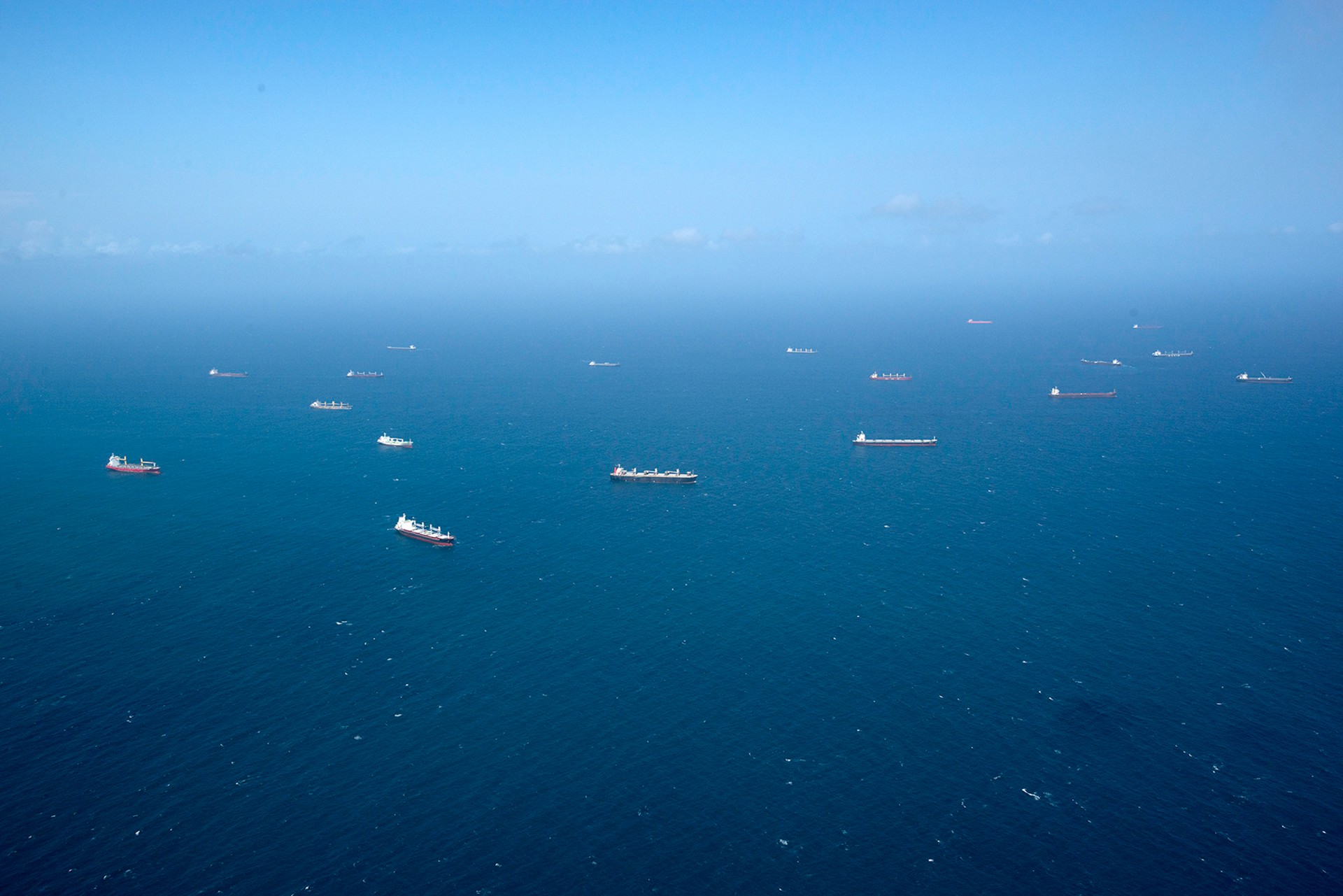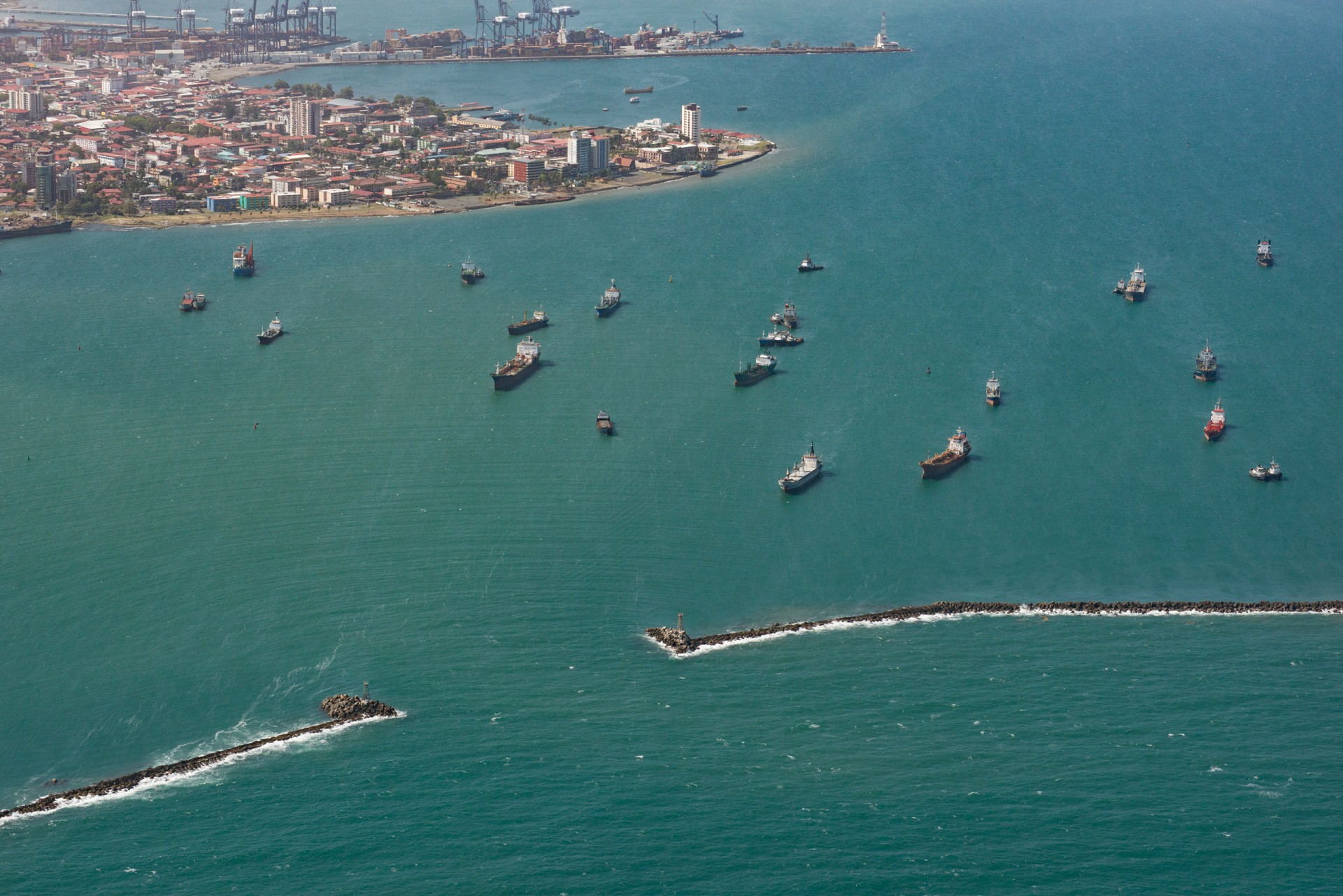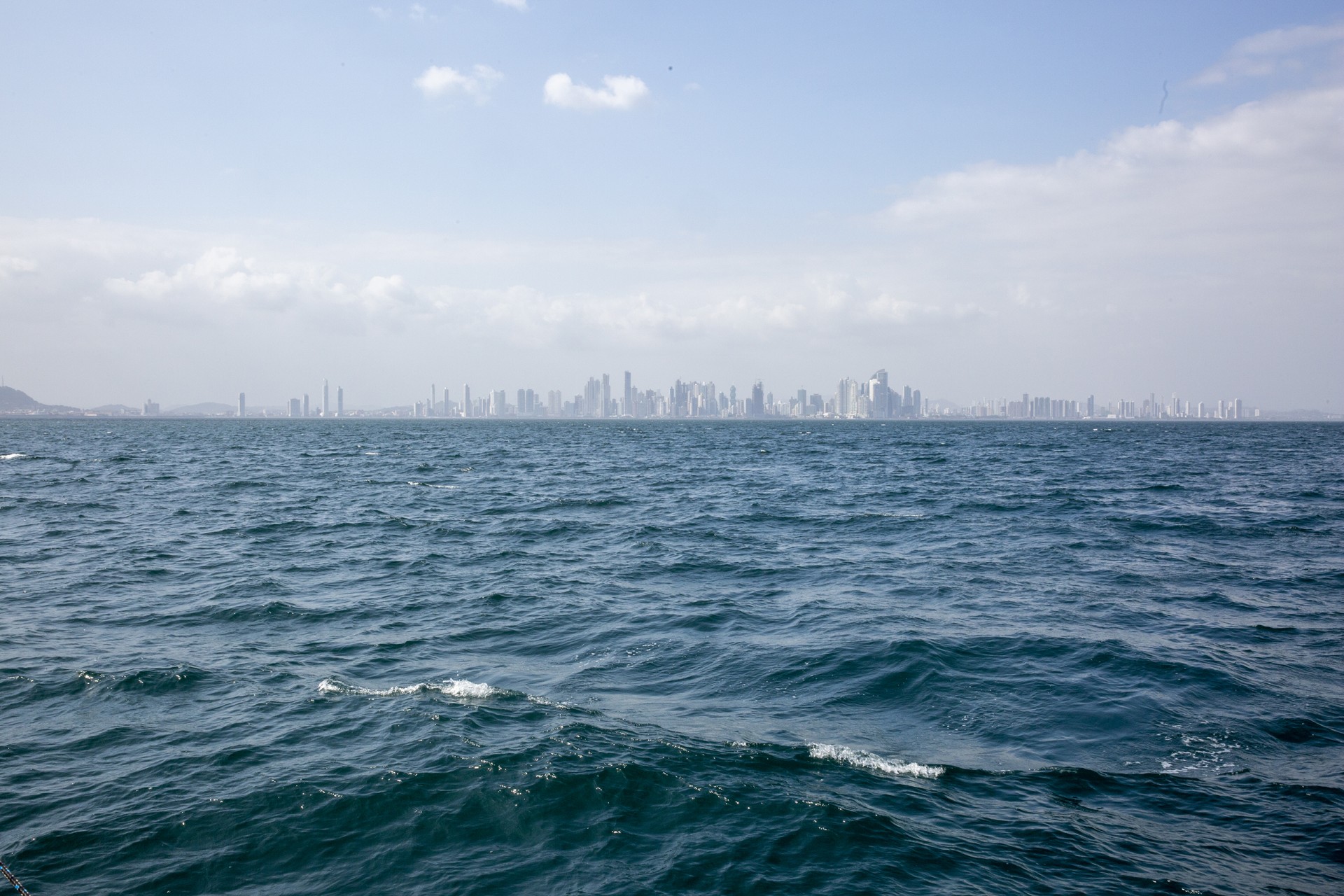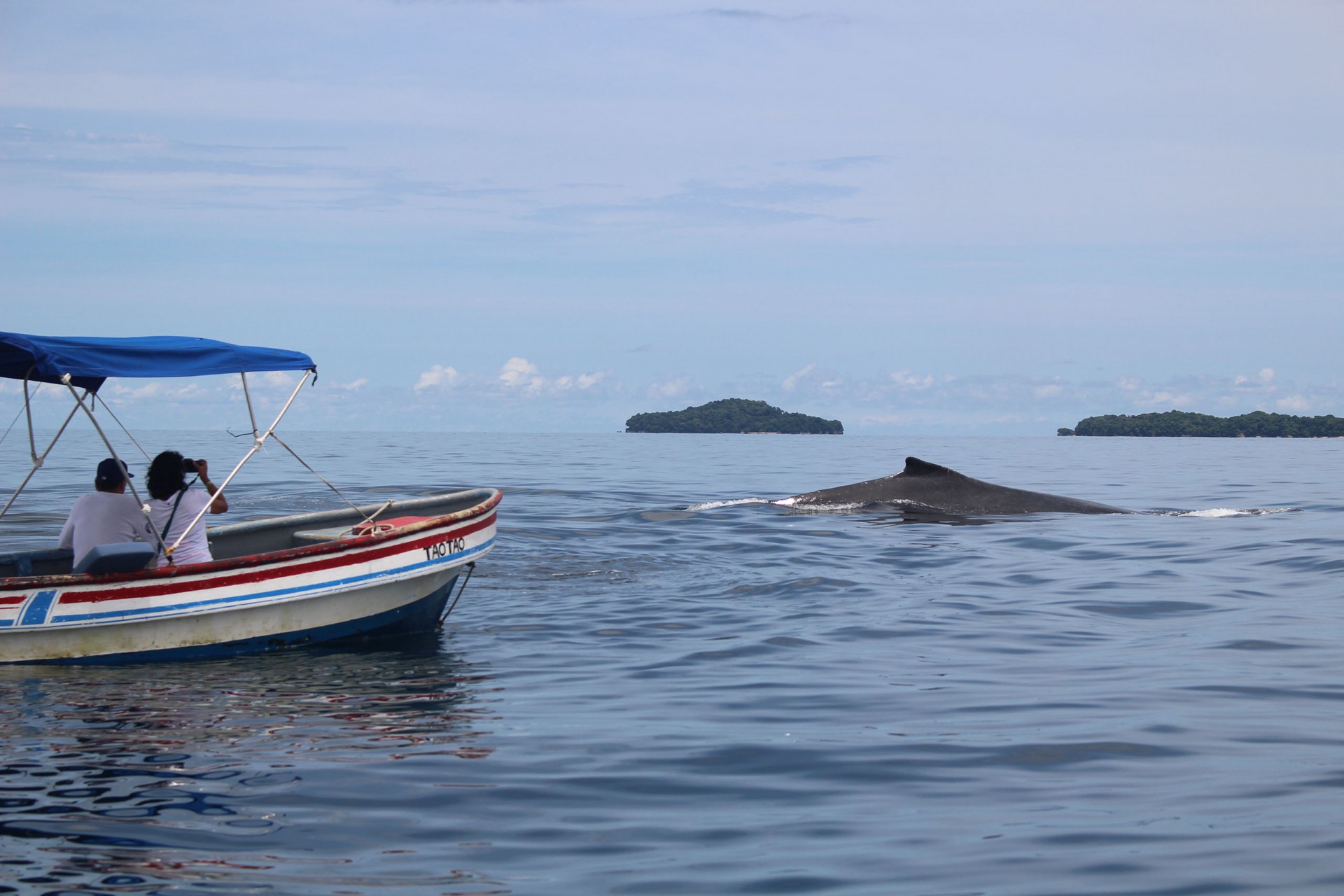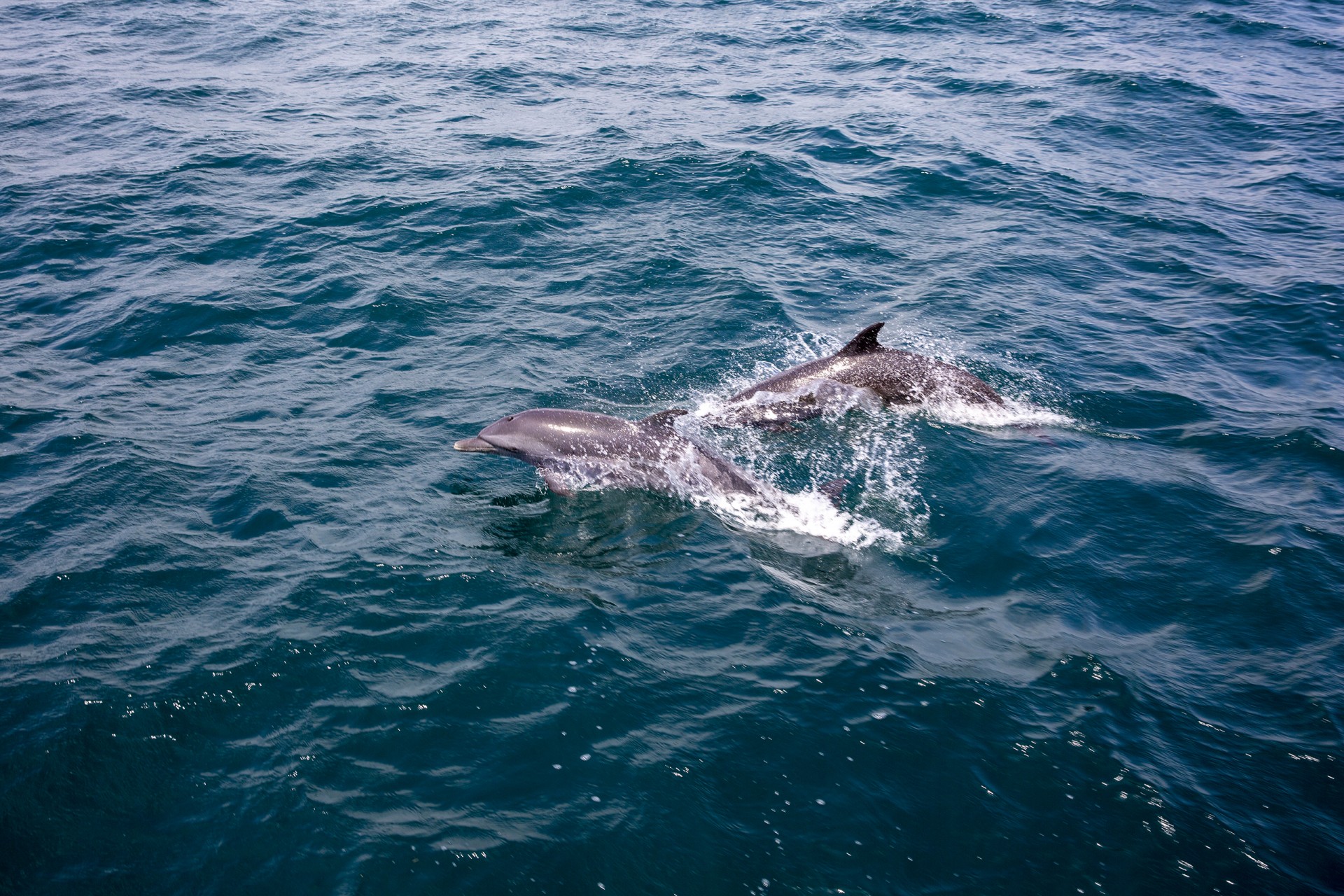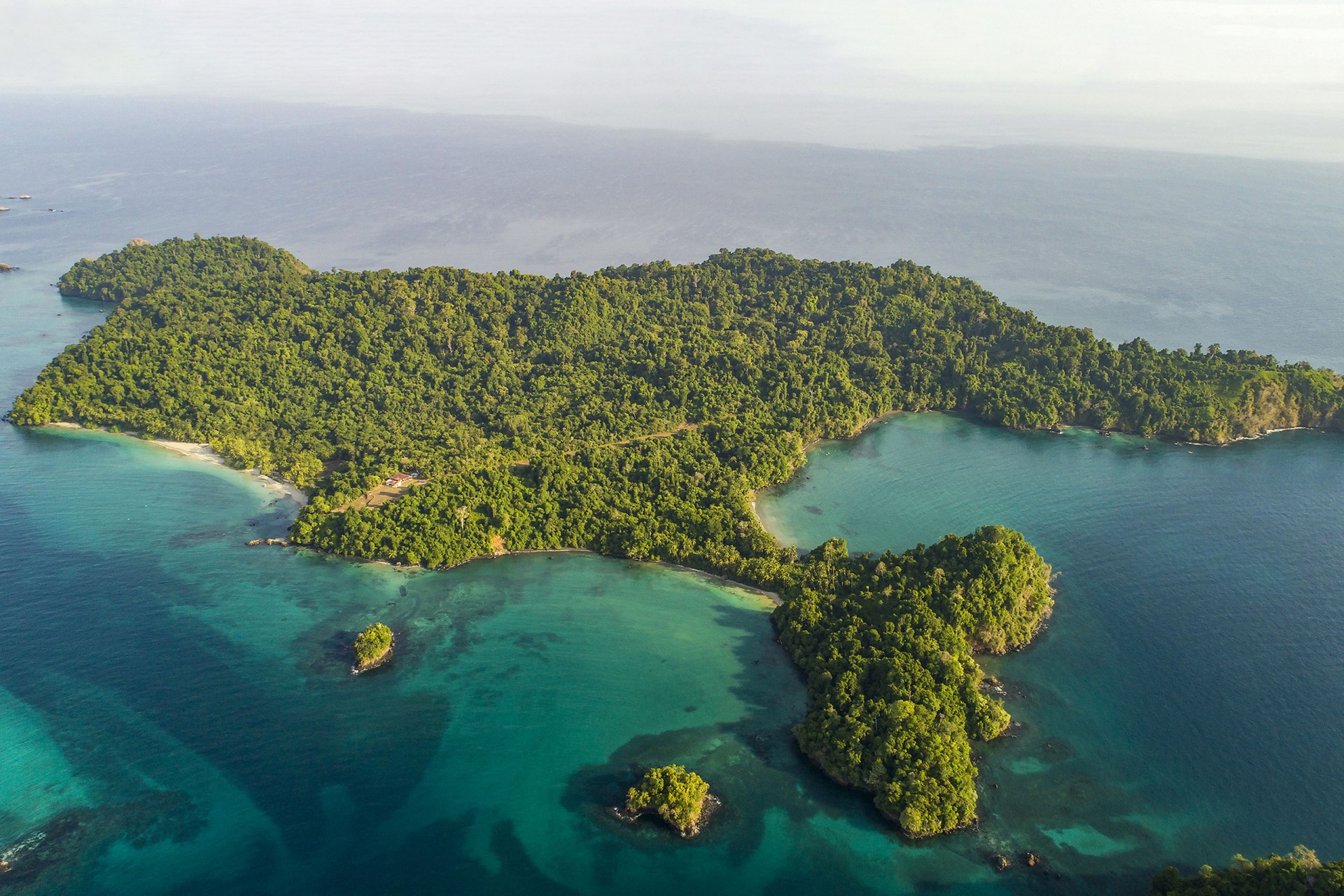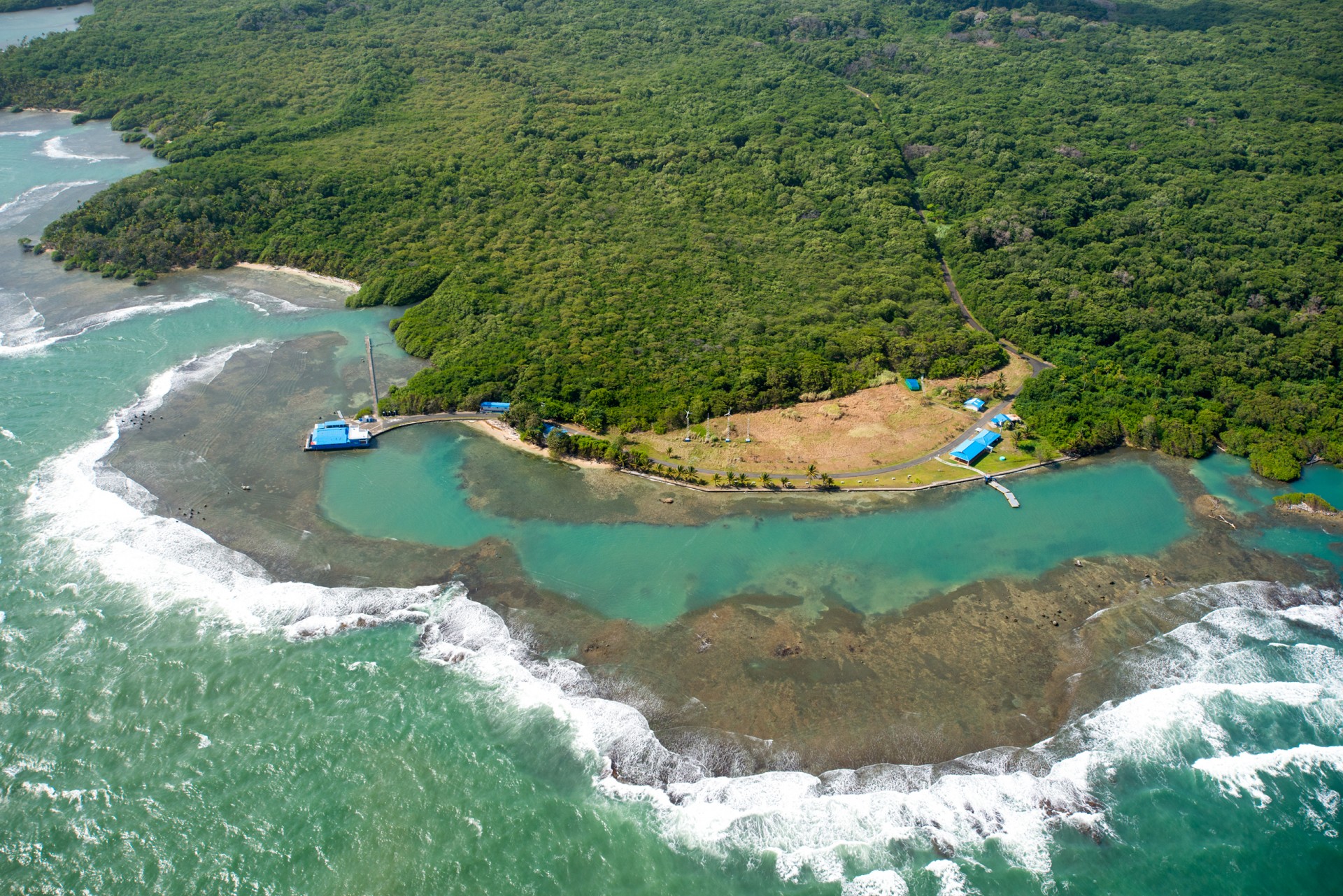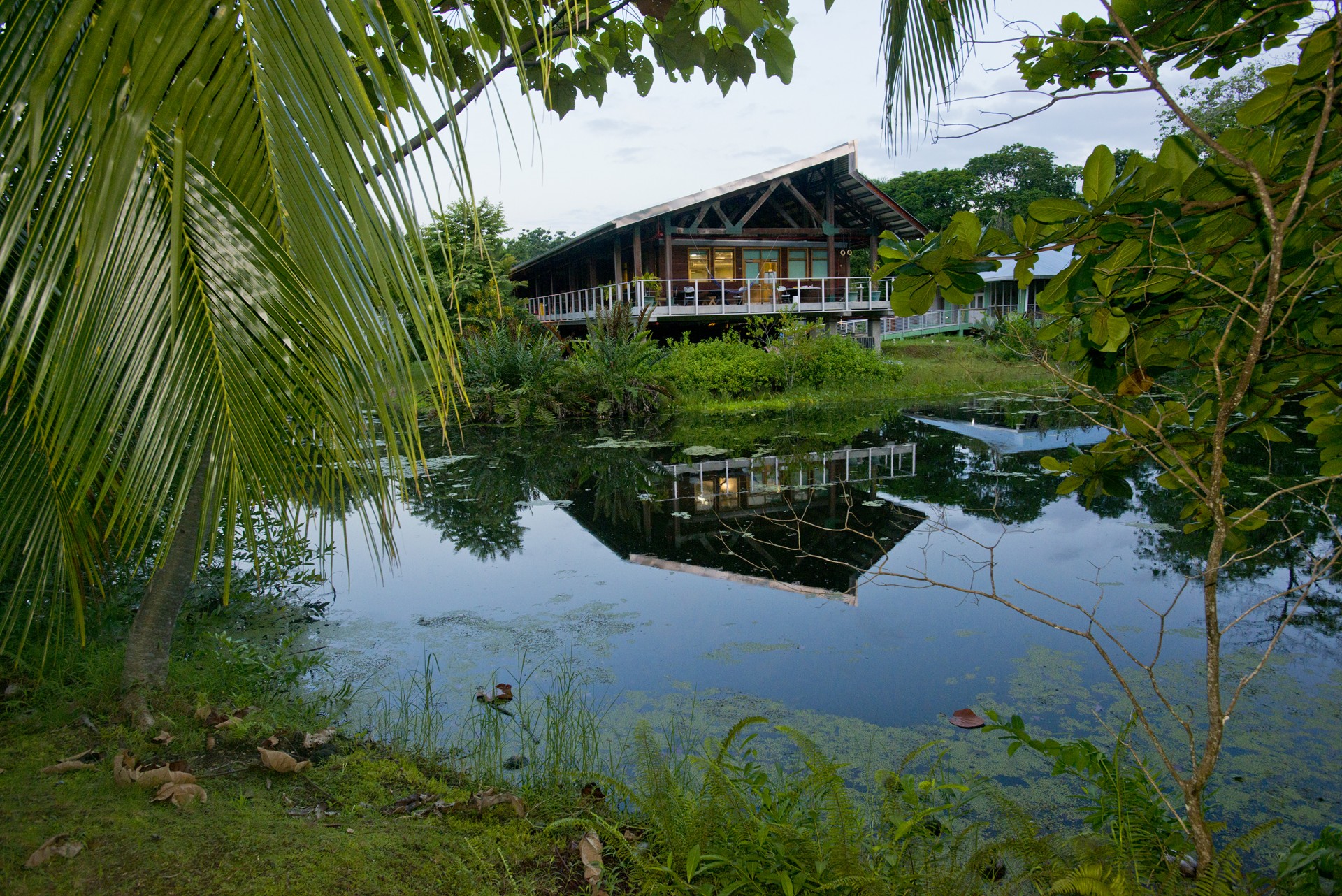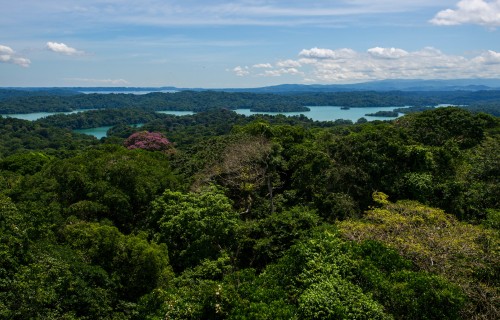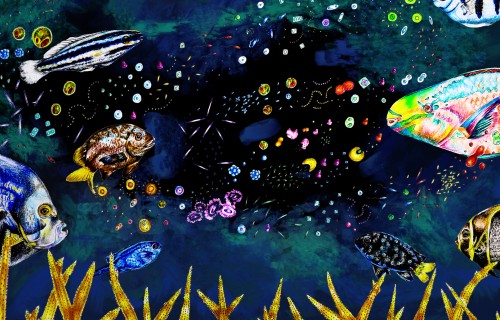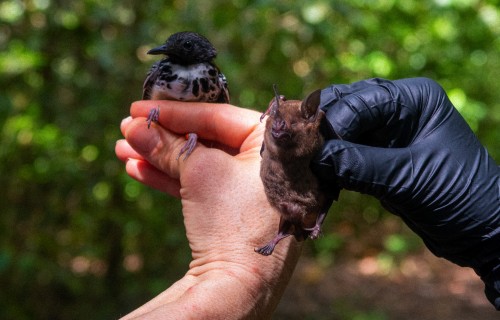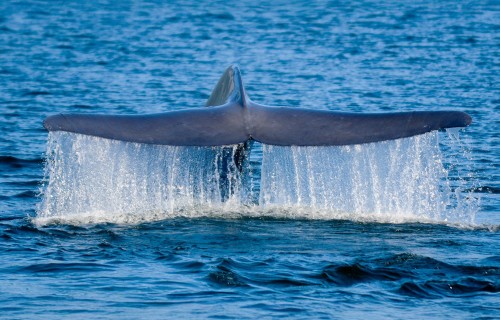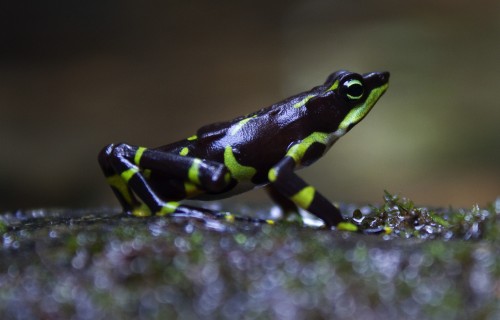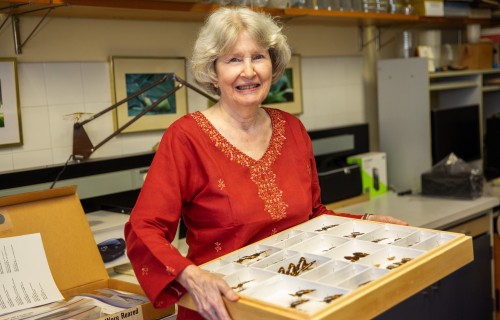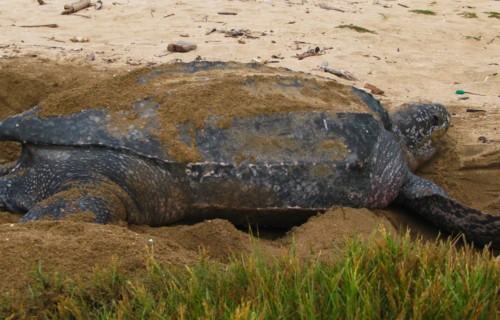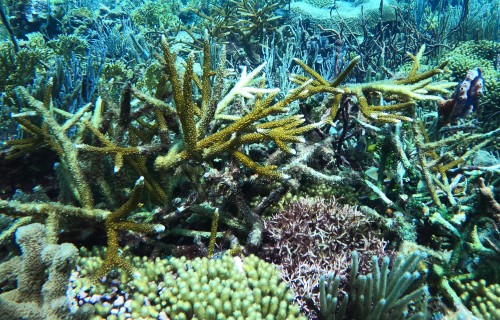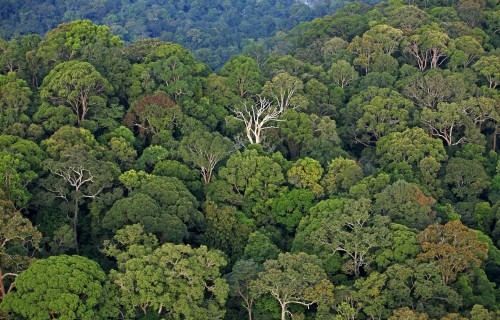Above the tropical forest canopy,
sensors capture the fluxes of gases
between the trees and the atmosphere
Virtual
Forum
Towards a sustainable
Blue Economy in Panama
Text by Leila Nilipour
English translation by Sonia Tejada
A virtual forum organized by the IDB and STRI explored Panama’s challenges and opportunities to achieve a sustainable management of its marine resources that stimulates economic development, sustains livelihoods and preserves biodiversity.
Last Tuesday, November 30th,the Inter-American Development Bank and the Smithsonian Tropical Research Institute (STRI) held a virtual forum, "Towards a Sustainable Blue Economy in Panama: Challenges and Opportunities," with the support of Panama’s Ministry of the Environment, the Camara Maritima de Panamá and the Aquatic Resources Authority (ARAP).
“The Blue Economy relates to the sustainable use, management and conservation of marine resources through activities that promote economic development and improve livelihoods, while preserving the richness of biodiversity. Its models -innovative and technological- can offer solutions to satisfy a responsible increase in consumption in a sustainable and climate-resilient way, by harmonizing restorative, regenerative and resilient actions in economic, environmental and social terms”, explained Gonzalo Rivas, head of the Competitiveness, Technology and Innovation Division at the Inter-American Development Bank.
“Panama looks to the sea – for tourism, for fisheries, for shipping, for the protection of infrastructure, for so much more - and a sustainable marine future will be critical for a thriving Panama economy going forward. And it is fair to say that the future of Panama’s Blue Economy will continue to depend on deep connections between science and policy and STRI science must continue to support the decisions ahead,” said STRI Director Joshua Tewksbury, in his opening remarks.
The event was attended by international spokesperson Michael B. Jones, president of TMA BlueTech, a non-profit industry association that promotes sustainable science-based marine industries, who delved into the concept of the Blue Economy and presented successful initiatives that can be replicable for Panama.
Additionally, experts from the public and private sector provided their vision regarding a Blue Economy policy for Panama. Eustorgio Jaén, head of the Department of Environmental Economics of the Directorate of Environmental Policy of MiAmbiente, spoke about the instruments for environmental management of marine-coastal resources in Panama that are in the process of being approved, such as the national ocean policy and the national action plan for marine litter.
Darío López, national director of research and development of Panama’s Aquatic Resources Authority, exposed some of the main problems that the country must face in order to achieve a Blue Economy. For his part, René Gómez, from Panama’s Maritime Chamber, spoke about the advantages and strategies for the implementation of sustainable or blue tourism in Panama.
On behalf of STRI, the marine biologist Héctor Guzmán gave a presentation entitled "What would the Panamanian blue economy be like without whales?", In which he highlighted the ecological role that whales play in the productivity of the oceans and in their capacity to sequester carbon.
“Whales are like having a large ship capturing carbon as they move through the oceans. They have the capacity to accumulate more than 33 tons of carbon dioxide in 60 years, which is the average lifespan of a whale,” highlighted Guzmán.
And he added: "Economists from the International Monetary Fund have told us that each whale could be valued at 2 million dollars."
"Activity in seas and oceans is highly relevant for countries like Panama, with extensive coasts, and can be an engine that supports the recovery of countries after a crisis, but it is important to promote a dialogue that involves the public, private sector and academia to jointly draw up a roadmap to maximize its potential in a responsible and sustainable way. This meeting is the beginning of an important dialogue on the future of the blue economy in Panama,” said Rocío Medina Bolívar, Representative of the IDB Group in Panama.

